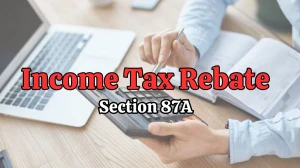
How Much Are Property Taxes in Florida?
Property taxes in Florida vary depending on the property's location and value, with an average rate of around 0.98%. These taxes are due on November 1 and become delinquent if not paid by April 1 of the following year.
by Sai V
Published Aug 31, 2023 | Updated Nov 06, 2023 | 📖 7 min read
How Much Are Property Taxes in Florida?
Property taxes in Florida vary based on several factors, including the assessed value of the property and the county in which it is located. The average property tax rate in Florida is approximately 0.98%, which is slightly lower than the national average of 1.08%. Property tax rates are measured in millage rates, meaning that for every $1,000 in home value, you would owe $1 in taxes.
The specific amount you pay depends on the assessed value of your property, with local tax assessors determining this value annually. It's important to note that property taxes in Florida fund a range of public services, including first responders, government services, infrastructure, employee salaries, and more. Due dates for property tax payments can vary by county, so it's essential to check with your local tax authorities for specific deadlines
Florida Property Tax
|
County |
Average Tax Payment |
Average Effective Property Tax Rate |
|---|---|---|
|
Alachua |
$1,965 |
1.18% |
|
Baker |
$947 |
0.78% |
|
Bay |
$1,144 |
0.69% |
|
Bradford |
$761 |
0.84% |
|
Brevard |
$1,460 |
0.90% |
|
Broward |
$2,503 |
1.12% |
|
Calhoun |
$520 |
0.65% |
|
Charlotte |
$1,706 |
1.03% |
|
Citrus |
$939 |
0.80% |
|
Clay |
$1,444 |
0.87% |
|
Collier |
$2,233 |
0.71% |
|
Columbia |
$1,144 |
1.02% |
|
DeSoto |
$1,014 |
1.21% |
|
Dixie |
$542 |
0.76% |
|
Duval |
$1,519 |
0.97% |
|
Escambia |
$998 |
0.79% |
|
Flagler |
$1,726 |
0.92% |
|
Franklin |
$909 |
0.67% |
|
Gadsden |
$865 |
0.85% |
|
Gilchrist |
$760 |
0.79% |
|
Glades |
$848 |
1.06% |
|
Gulf |
$888 |
0.59% |
|
Hamilton |
$710 |
0.97% |
|
Hardee |
$841 |
1.04% |
|
Hendry |
$978 |
1.23% |
|
Hernando |
$1,094 |
0.91% |
|
Highlands |
$846 |
0.96% |
|
Hillsborough |
$1,836 |
1.02% |
|
Holmes |
$569 |
0.62% |
|
Indian River |
$1,476 |
0.86% |
|
Jackson |
$579 |
0.61% |
|
Jefferson |
$1,133 |
0.86% |
|
Lafayette |
$802 |
0.79% |
|
Lake |
$1,476 |
0.95% |
|
Lee |
$1,853 |
0.97% |
|
Leon |
$1,851 |
0.99% |
|
Levy |
$745 |
0.84% |
|
Liberty |
$574 |
0.92% |
|
Madison |
$771 |
0.88% |
|
Manatee |
$1,839 |
0.93% |
|
Marion |
$1,177 |
0.99% |
|
Martin |
$2,276 |
0.98% |
|
Miami-Dade |
$2,523 |
1.04% |
|
Monroe |
$2,971 |
0.69% |
|
Nassau |
$1,727 |
0.85% |
|
Okaloosa |
$1,426 |
0.72% |
|
Okeechobee |
$1,130 |
1.26% |
|
Orange |
$1,949 |
1.01% |
|
Osceola |
$1,503 |
0.91% |
|
Palm Beach |
$2,712 |
1.12% |
|
Pasco |
$1,290 |
0.96% |
|
Pinellas |
$1,566 |
0.94% |
|
Polk |
$1,101 |
0.91% |
|
Putnam |
$908 |
1.10% |
|
Santa Rosa |
$2,662 |
0.97% |
|
Sarasota |
$1,856 |
1.23% |
|
Seminole |
$1,303 |
0.76% |
|
St. Johns |
$1,885 |
0.88% |
|
St. Lucie |
$1,902 |
0.94% |
|
Sumter |
$2,252 |
0.94% |
|
Suwannee |
$909 |
0.98% |
|
Taylor |
$765 |
0.90% |
|
Union |
$780 |
0.88% |
|
Volusia |
$1,468 |
0.98% |
|
Wakulla |
$1,050 |
0.79% |
|
Walton |
$1,087 |
0.54% |
|
Washington |
$699 |
0.68% |
Does Florida Have Property Tax?
Yes, Florida does have a property tax system in place. In the state of Florida, individuals who own real property, which includes land and buildings, are subject to property taxes. However, what sets Florida apart from many other states is its absence of a state income tax. While residents in some states might contend with both state income taxes and property taxes, Floridians are exempt from state-level income taxation.
Instead, they are required to pay property taxes, which are calculated based on the assessed value of their real property. It's important to note that property tax rates and regulations can vary significantly from state to state, and even within different counties and municipalities within Florida. This unique taxation structure contributes to Florida's appeal as a tax-friendly state for individuals who prioritize minimizing their income tax burden.
When Are Property Taxes Due in Florida?
Property taxes in Florida are typically due on November 1 of each year and can be paid without incurring penalties until March 31 of the following year. However, it's crucial to be aware that these taxes become delinquent on April 1, at which point a minimum of 3 percent interest, along with additional advertising costs and fees, are added to the amount owed. Property owners in Florida should ensure they make their tax payments in a timely manner to avoid incurring extra charges and penalties.
How Often Do You Pay Property Tax on a House in Florida?
Property taxes on houses in Florida are due annually and follow a specific payment schedule. These taxes cover the calendar year and must be paid by November 1 of that year. If the payment is not made by March 31 of the following year, the taxes become delinquent starting from April 1. This regular payment cycle ensures the funding of essential public services and infrastructure maintenance throughout the state.
Annual Payment: Property owners in Florida are required to pay Real Property Taxes on their houses on an annual basis. These taxes cover the entire calendar year.
Payment Deadline and Delinquency: The deadline for paying Real Property Taxes is November 1 of the tax year. However, if the taxes are not paid by March 31 of the following year, they are considered delinquent, with the delinquency date being April 1. It's crucial to ensure timely payment to avoid any penalties or complications.
How Do Property Taxes Operate Within the State of Florida?
Property taxes constitute a significant revenue source for local governments in the state of Florida. This taxation system involves property owners, tax rates, assessments, and a clear allocation of funds. Understanding how property taxes work is crucial for homeowners and businesses alike.
Taxpayer Responsibility
Property taxes are the financial obligation of property owners, whether they are individuals or businesses. These taxes are levied on real estate holdings, and the owed amount hinges on the value of the property and the tax rate prescribed by the local government.
Determining Tax Obligation
The primary factors affecting the tax obligation are the assessed value of the property and the applicable tax rate. Florida's property appraisers conduct an annual assessment of property values, factoring in exemptions, assessment limitations, and classifications that might impact the property's taxable value.
Millage Rate Computation
Local governments in Florida employ a millage rate to compute property taxes. This rate quantifies the tax imposed per $1,000 of the property's assessed value. In simpler terms, one mill corresponds to a dollar in taxes for every $1,000 of assessed property value.
Tax Collection and Management
Tax collectors are entrusted with the task of issuing property tax bills to property owners. Unless property taxes are already included in mortgage payments, owners receive these bills. Tax collectors handle tax payments, offer information about payment options, and are responsible for issuing refunds for any excess tax payments.
Allocation of Tax Revenue
It's essential to note that the revenue generated from property taxes is earmarked solely for local governments in Florida. These encompass county governments, city governments, and school districts. The state government itself does not directly access or utilize this tax revenue.
Utilization of Tax Revenue
Property taxes serve as a cornerstone for funding public services and infrastructure projects. In Florida, these funds are channeled towards public schools, road development, establishment of libraries, and provision of select medical services. The taxes paid by property owners contribute to the betterment of local communities.
What Are the Methods for Reducing Your Property Tax Bill in Florida?
Discover various strategies to lower your tax bill, including the prevalent homestead exemption that can significantly reduce taxable property values. Additional exemptions cater to disabilities, senior citizens, veterans, widows/widowers, first responders' spouses, and properties with specialized uses, offering diverse paths to potential savings.
Homestead Exemption
The homestead exemption is a common way to save on property taxes in Florida. If you own a property and use it as your main home, or if it's the permanent home of a dependent, you could qualify. This exemption can lower the taxable value of your property by as much as $50,000.
Exemptions for Specific Groups
Different groups of people in Florida may be eligible for special exemptions that can help reduce property taxes. These groups include:
- Property Owners with Disabilities: If you have a disability, you might qualify for specific property tax exemptions.
- Widows and Widowers: If you've lost a spouse and haven't remarried or divorced before their passing, you could be eligible for a $5,000 exemption.
- Senior Citizens: There might be exemptions available for senior citizens, but they often have age-related requirements.
- Veterans and Military Members: Veterans and active-duty military members may also qualify for property tax exemptions.
- Spouses of First Responders: If your spouse was a first responder who died while on duty, you could be eligible for exemptions.
- Specialized Properties: Certain properties with unique uses might also have exemptions available.
Veterans' Exemptions
Veterans have special options in Florida. They can potentially benefit from up to four different types of exemptions, which can significantly reduce their property tax burden.
Legally Blind Homeowners
If you are legally blind and own a home, you may be entitled to a $5,000 exemption on your property taxes.
How Much Are Property Taxes in Florida - FAQs
1. What is the average property tax rate in Florida?
The average effective property tax rate in Florida is 0.91%.
2. When are property taxes due in Florida?
Property taxes in Florida are due annually by April 1 of the year following the assessment.
3. Who is responsible for paying property taxes in Florida?
Property owners, including homeowners, business proprietors, and rental property owners, are responsible for paying property taxes in Florida.
4. How can I reduce my property tax bill in Florida?
You can reduce your property tax bill through exemptions like the homestead exemption, veterans' exemptions, and exemptions for seniors and disabled individuals.
5. What do property taxes in Florida fund?
Property taxes fund essential services such as emergency response, law enforcement, infrastructure maintenance, education, and recreational facilities in Florida.




